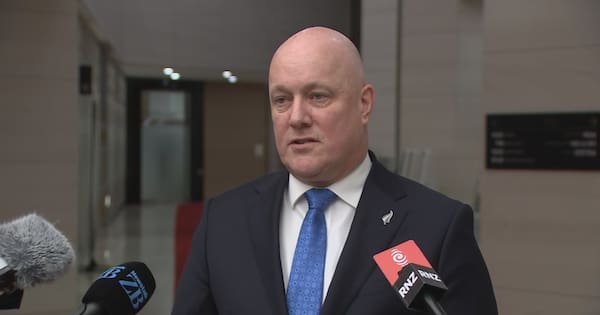A mechanic believes a look at the Warrant of Fitness system was “overdue”, but said Kiwis would need to change some of their habits for the proposed changes to work.
Yesterday, the Government opened a series of proposed changes to transport law up for public consultation, with a shakeup to the frequency of WoF and CoF A checks among the ideas put forward.
Under the proposed changes, the first WoF for new vehicles would last 4 years. Vehicles between four and 10 years old would need checks every two years, while those older than 10 would still need to get a new WoF every 12 months.
Craig Draper, mechanic and owner of Auckland garage Fred Co Motors, said the Government taking a look at the WoF system was a good thing and “well overdue”.
“Our laws for our warrants of fitness are quite outdated,” he said.
Changes proposed for ‘outdated’ Warrants of Fitness under fresh proposal – Watch on TVNZ+
He said stretching out a warrant for new vehicles to four years was perhaps a bit long, as when newer vehicles came in for a check after three years they often needed work.
The biggest obstacle for extending the timeline for cars between four and 10 years of age, Draper said, was the habits many Kiwis held regarding vehicle maintenance.
“We find, in experience, that people don’t generally look at their tyres, look at their vehicle safety, and they actually rely on their vehicle inspectors to do that for them.”
Draper said if the proposed changes came into force, the onus would be on drivers to make sure their vehicles were roadworthy and to organise repairs themselves.
“Because that’s not going to happen by a service provider if they’re not actually forced to come in and have an inspection.
“The only way we can get around that is going to be education for drivers.
“If we can educate our drivers, maybe it would be a good idea to extend to four years for the new vehicles and the two-year warrants for vehicles up to 10 years old.”

He said proposed changes to CoF A checks, which would see commercial light vehicles – like Ubers, taxis and other ride shares – need a new CoF A every year rather than every 6 months, was fine for newer vehicles.
Again, older vehicles would need their owners to keep up with maintenance in between checks, if the time was increased.
Draper suggested the new WoF timelines could also be based on mileage rather than time.
“If it’s done on a mileage basis, then you would have the higher mileage vehicles getting checked more regularly.”

Reacting to the changes yesterday, the Motor Trade Association echoed Draper’s views.
MTA Chief Executive Lee Marshall said he appreciated the Government’s intentions to make motorists’ lives easier, but said increased public education on vehicle maintenance was needed.
“The automotive industry is first and foremost focused on safety, and what’s best to keep Kiwis safe on our roads. That must be the primary function of the WoF,” he said.
“While many motorists are conscientious and careful with their vehicle, we know some aren’t, which is why we need regulation.
“We welcome the opportunity to feed into the process, to make sure the balance is right.”
The changes revealed yesterday were among several other transport reforms pushed by the Government this year.
Transport Minister Chris Bishop said it was an effort to “modernise” the rules, which he described as “riddled with outdated or nonsensical requirements” that created unnecessary burdens.
“These changes are about increasing our transport system’s productivity and safety.”
In September, new WoF and CoF rules for vintage light vehicles and private heavy motorhomes were introduced, only requiring them to be inspected once a year.
A bill opening the way for driver’s licences, warrants of fitness and certificates of fitness to live on motorists’ phones began its journey through Parliament in August.
The morning’s headlines in 90 seconds, including Luxon meets Trump, a big payday on the way for farmers, and a message in a bottle from World War 1 washes up. (Source: 1News)












